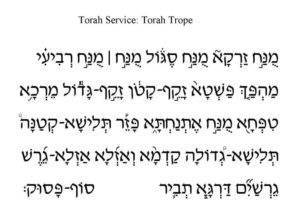Online Learning
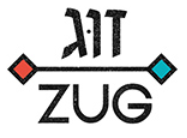
Project Zug encourages Jews of all backgrounds to take ownership over their studying through one-on-one havruta learning. Register for our spring cycle by March 6th to start learning on March 15th.
Study a familiar topic or explore something totally new with over 30 courses to choose from, taught by inspiring teachers including Hadar faculty. Commit to an experience of deep shared learning and conversations at your own pace and from the comfort of your own home. Sign up with a havruta, or let us match you! Check out Zug’s Facebook page and website.
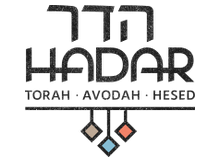 Project Zug works with the Hadar Institute. Check out their YouTube channel and their website.
Project Zug works with the Hadar Institute. Check out their YouTube channel and their website.
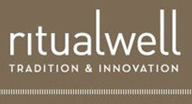 We’re thrilled to announce that their fall lineup of courses are now open for registration!
We’re thrilled to announce that their fall lineup of courses are now open for registration!
Like the Ritualwell website, our courses are designed to make Jewish practice personal and meaningful, combining text study with experiential and interactive learning. And with so many topics to choose from you’re sure to find something right for you!
 We are very excited to announce Evolve: Groundbreaking Jewish Conversations, a project of Reconstructing Judaism. The essays and resources on the Evolve site have been posted to serve as the bases for ongoing conversations about challenging topics.
We are very excited to announce Evolve: Groundbreaking Jewish Conversations, a project of Reconstructing Judaism. The essays and resources on the Evolve site have been posted to serve as the bases for ongoing conversations about challenging topics.
We offer these resources to you in your community activities and for your own personal study.
Find insightful essays, study guides, sermon sparks and text resources about seven urgent issues of our day:
- Jewish Approaches to Justice Work
- Harnessing Technology
- Why Be Jewish?
- Redefining Jewish Identity
- Judaism and Race
- Cultivating Constructive Conversations about Israel/Palestine
- Reimagining Jewish Community
We also hope that Evolve will be a site for ongoing conversations about these groundbreaking issues””conversations that exemplify our values of mutual respect and open-hearted communication. We encourage you to write or video responses that we can add to these conversations. Please share your responses with us here.
These issues will be featured in many of the workshops at the upcoming Convention in Philadelphia of Reconstructing Judaism. In addition, in the coming year, several of our Reconstructionist Learning Networks will focus on these issues.
The evolution of Jewish civilization to which we are all committed depends on our willingness to address difficult issues together in exciting ways that can be challenging. We hope that Evolve will serve as a site that promotes these important conversations.
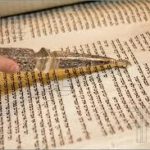 Learn to Chant Torah
Learn to Chant Torah
Learning to chant Torah is a useful skill and can be a wonderful way to participate in the community. After learning the trope signs and their associated melodies, you can make your way through most of the Chumash, the Five Books of Moses, where these symbols are used.
TBI uses a slightly different trope system than many other communities, but most other systems are similar enough to not cause confusion. You can listen to the trope here. Download a PDF of the trope or follow along below.
For a detailed description of trope and the cantillation system of reading Torah see the Wikipedia article.
To listen to the trope system for Haftarah, click here-and blessings before and after.
Videos
 Weekday Davenning (Prayers)
Weekday Davenning (Prayers)
The prayers for the weekday service, follow a different nusach (set of melodies) than Shabbat and holidays.
Kol Haneshamah-Limot Chol/Daily Siddur
Mah Tovu-page 3
Birchot ha Shachar-page 15
Modeh/Modah Ani-page 21
Asher Yatsar-page 21
Elohai Neshamah-page 23
Psalm 30-page 31
Baruch She’amar (version 1)-page 33
Baruch She’amar (version 2)-page 33
Page 35
Ashrei (chant)-page 41
Ashrei (full prayer)-page 41
Psalm 146 (Halleli Nafshi)-page 51
Psalm 150-page 61
Page 61–>Yishtabach
Hatzi Kaddish-page 65
Barchu-page 67
As We Bless-page 67
Titbarach–>kulam ahuvim-page 71
Page 73
Or Chadash-page 75
Ahavah Rabah (chant)
Vehar eyneynu-page 81
Shema-page 83
Emet V’yatziv-page 93
Mi Chamocha-page 97
Amidah (full)-page 99
Oseh Shalom-page 135
Kaddish Titkabal-page 145
Aleinu-page 169
Ozi V’Zimrat Yah-379
Aleinu-page
Yihiyu L’Ratzon-page 135


